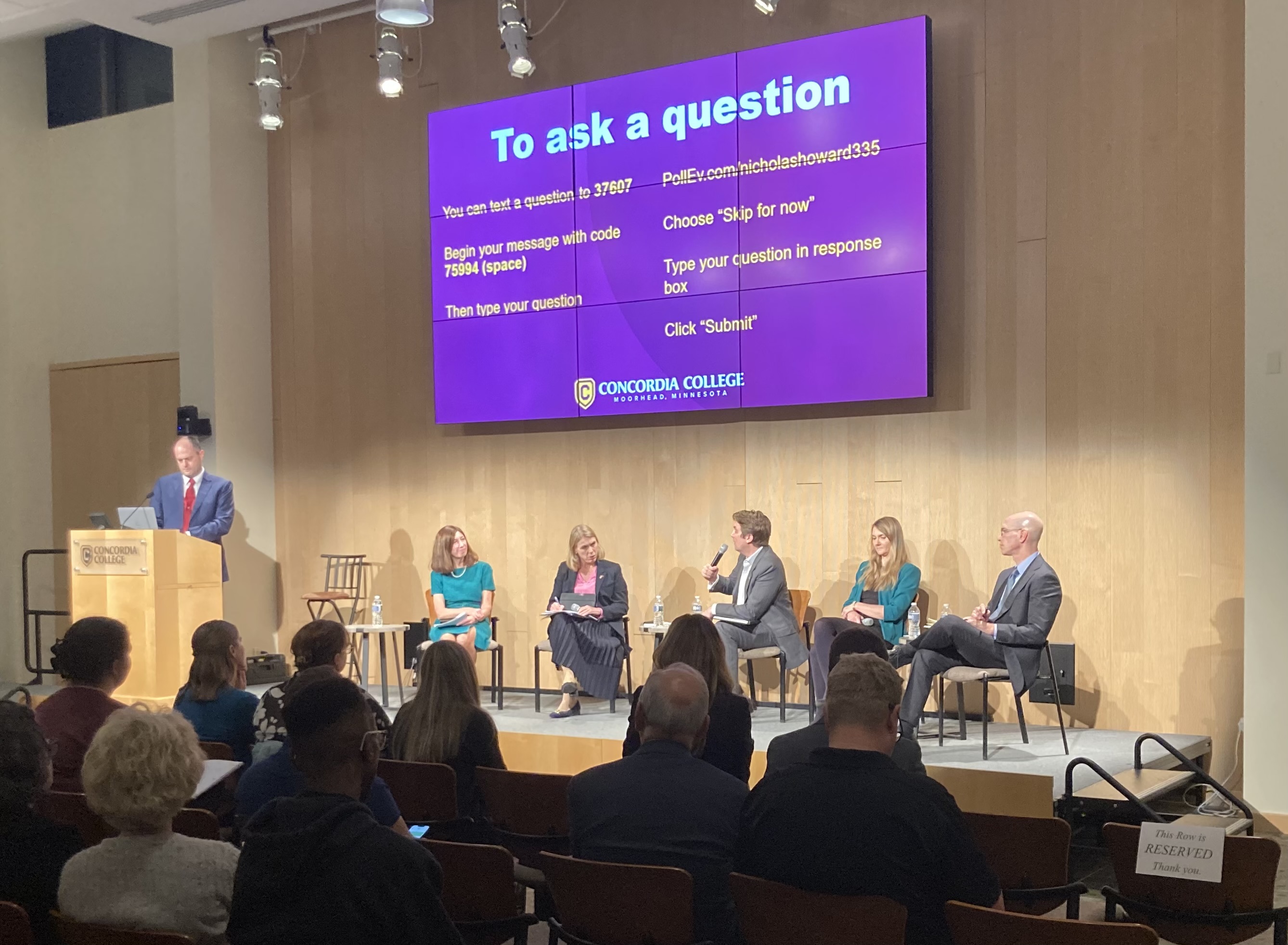MOORHEAD- Members from the North Atlantic Treaty Organization (NATO) traveled to Concordia to discuss international relations Tuesday, Oct. 8.
Diplomats from Poland, Britain, Norway and Washington D.C. spoke at a panel hosted by Concordia College to discuss foreign policy and global affairs relating to Russia. The event was moderated by Political Science Professor Rebecca Moore.
“The goal was to bring conversations about NATO to the part of the United States outside the Washington bubble.” Moore said. “In other words, to promote discussion about NATO and its relevance.”
The panelists included Anniken Huitfeldt, Norwegian Ambassador to the U.S. Mark Newton, Minister Defense (Director USA) British Embassy. Maria Markowska, First Counselor, Polish Embassy. Dr. John Deni, Research Professor, U.S. Army War College’s Strategic Studies Institute.
“The panelists today are some of the most important people influencing the security decisions of the world. It’s so incredible for them to be at Concordia and just taking their time to come talk to us,” said Concordia student Tony Berndt.
Just like many students that attended Tuesday’s panel Berndt is majoring in political science, Professor Moore feels that the panel served students an up-close look into the inner workings of international politics.
“I think this was a great opportunity for students to hear from people who are working directly in the field, who have first firsthand experience working on NATO related issue,” Moore said. “I think it was also very useful for students to hear a European perspective on the issues facing the NATO alliance and also why NATO is relevant to Americans.”
Moore also went on to highlight the importance of America’s participation within NATO and European security. A subject that was heavily emphasized by the panelists during Tuesday’s public event.
According to Moore the panel was arranged through a joint partnership with Concordia and The Center for New American Security (CNAS), a bipartisan nonprofit organization that analyzes national security and foreign policy.
As part of this partnership Tuesday’s panel was recorded for the CNAS podcast Brussel Sprouts, which produces transatlantic news to the public.
“The podcast has a large following in Europe. Part of the goal also is to expose Europeans to American views about the Alliance,” Moore said.
Despite much of the on-campus advertising, one of the panelists was unable to attend. Adam Krzywosądzki, Chargé d’Affaires, of the Polish Embassy in Washington was forced to cancel a week prior leaving First Counselor Maria Markowska to take his place.
“He [Krzywosądzki] was not able to join us because of a delegation that was coming from Warsaw unexpectedly, and so he had to remain in Washington,” said Moore
Moore also admitted that she did have more questions for the panelists but was limited due to the panels run time
“I knew we probably weren’t going to get to all my questions, it’s hard to know how much the panelists are going to say, or whether everyone’s going to respond, so it’s necessary to be flexible,” Moore said.
Right before the panel, Mark Newton, Minister of Defense (Director USA) spoke about the importance of evolving the public in NATO discussions.
“We talk about it with a very small group of people in DC, and there’s a real risk of getting into an echo chamber. I love getting out of the beltway. I love getting into real America and talking to people about what matters to them and why I think certain issues matter to me,” Newton said.

